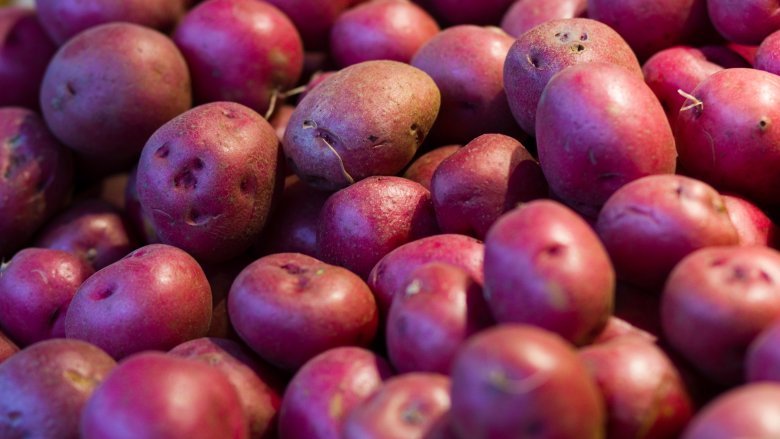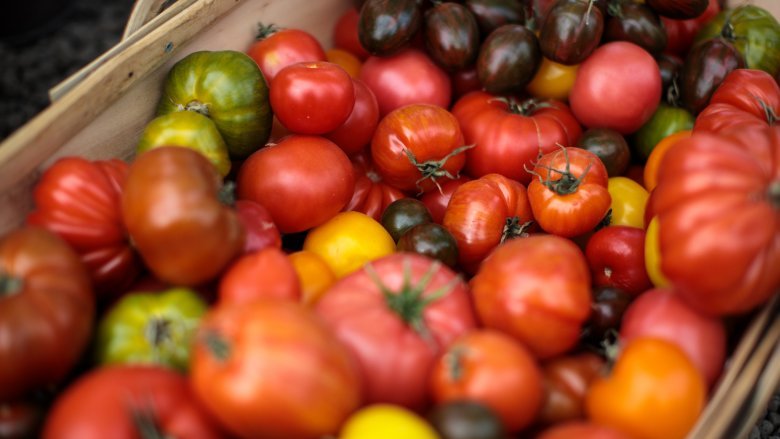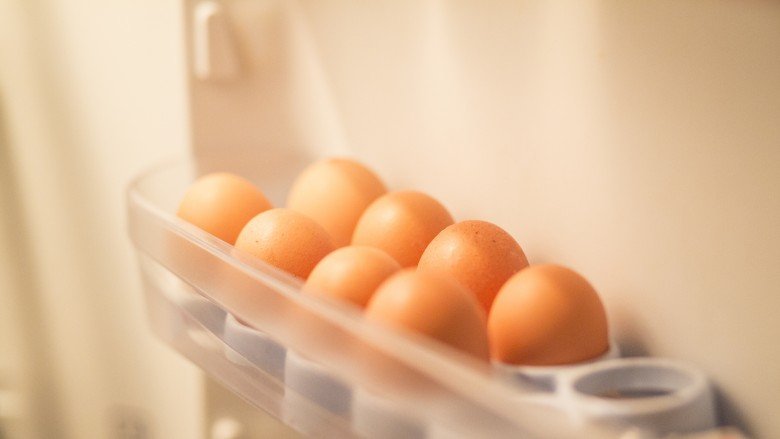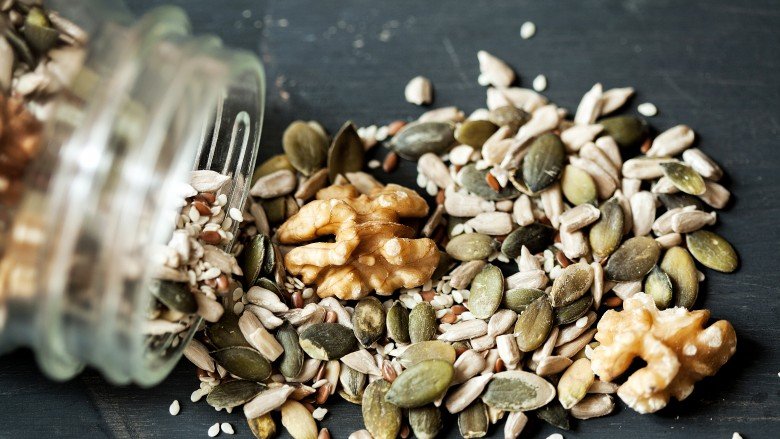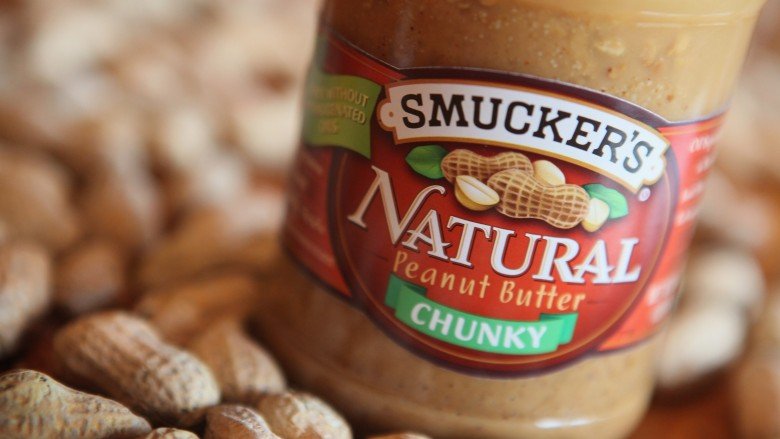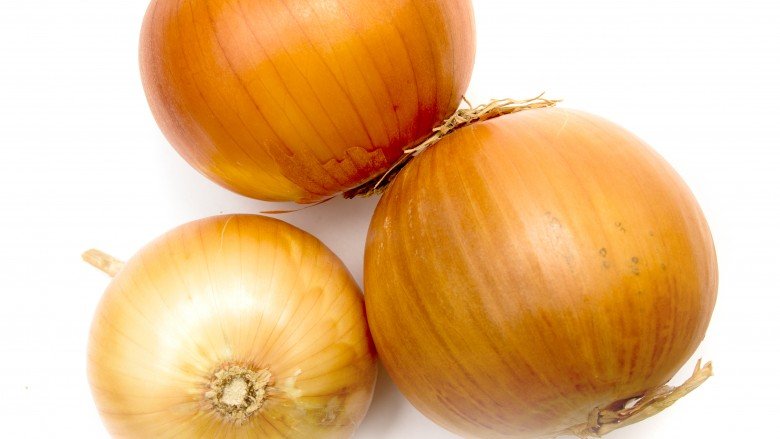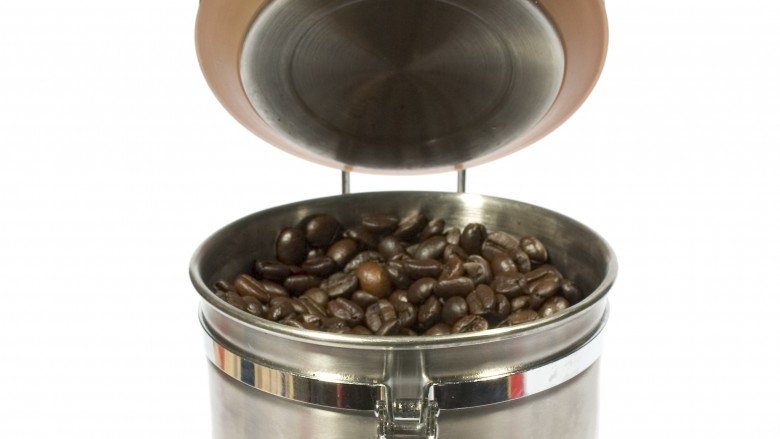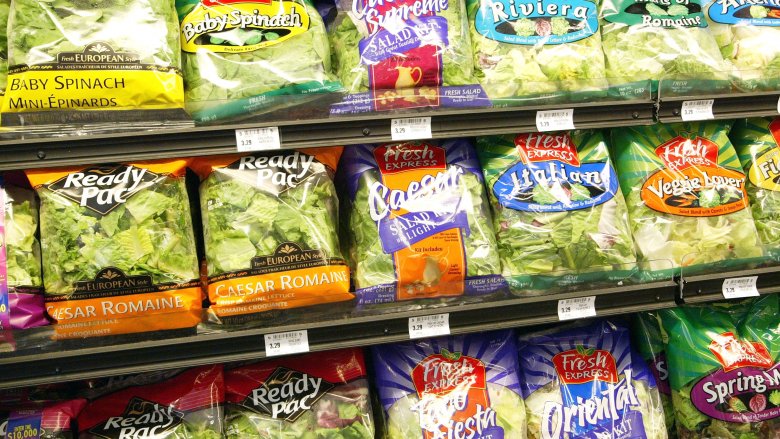5 Foods You Should Be Refrigerating And 5 You Shouldn't
We may receive a commission on purchases made from links.
There's a variety of milk out there, from both animals and plants, and while they vary in shelf life, they have similar refrigeration needs. The rule of thumb is that any milk from livestock, such as cow's milk, goat's milk, and sheep's milk, should always be refrigerated. This applies to both pasteurized and ultra-pasteurized milk, although the shelf life of the latter is significantly longer (until it's opened).
Almond milk, soy milk, and coconut milk that is shelf-stable is stocked in grocery stores on regular shelves, but once you bring it home and open it, you have to store it under refrigeration or it will spoil sooner, just like cow's milk.
The one exception to this rule is aseptic or ultrahigh-temperature (UHT) pasteurized milk, which is ultra-pasteurized milk that is stored in a hermetically-sealed container. It does not have to be refrigerated and has a shelf-life of up to one year — which is why you often see half-and-half creamer pods stored at room temperature.
Syrups and jams
Fewer things are more delicious and nostalgic than a steaming plate of pancakes covered in butter and maple syrup. And although no one wants to pour cold maple syrup all over their pancakes, it's important to refrigerate all syrups once they have been opened. As long as you store opened syrup properly, it has a shelf life of up to one year, which is pretty impressive. If you want to warm it up, zap the amount you want in the microwave before serving.
Similar rules apply to jellies and jams. Spreads that you can at home, as long as you can them properly in sanitary conditions, is fine on the shelf until you break the seal. Then it has to be refrigerated, and usually has a shelf life of about a month (though low- or no-sugar spreads may not last that long). Monitor spreads for any changes, such as yeasty or alcohol odors, and discard it if you detect such smells.
Store-bought spreads should also be refrigerated after opening; follow the instructions on the packaging for proper storage and discarding.
Potatoes
Potatoes are an inexpensive, versatile staple in many kitchens. And since they're cheap, they're often bought in bulk. But don't just just toss the bag in the fridge with everything else and forget about it — that's not optimal for spuds. When they're stored at such cold temperatures, the starches break down, rendering the potato gritty in texture and unpleasantly sweet. It will also cause them to turn a darker color when fried, and that's not appetizing at all.
The best place to store these living, breathing spuds — that need fresh air — is in a cool but not cold (between 42-55 degrees Fahrenheit), ventilated area of the home, ideally with high levels of humidity to prevent water loss. It should also be dark, to prevent the potatoes from turning green. Depending on where you live, that could be a garage, a basement, or an unheated spare room.
Tomatoes
Fresh tomatoes are a vital component in cuisines around the world from India to Italy to the USA. But you're doing them a disservice if you're chucking them into the vegetable crisper in your refrigerator. For one, they're not vegetables — they're actually fruits, berries specifically. And storing them at cold temperatures will not only dull the flavor, but also render the texture mealy, making for an unpleasant surprise in your sandwich.
Rather, tomatoes should be stored at room temperature, and away from direct sunlight. They should also sit with the stem scar facing upward, which slows darkening and softening. Ripe tomatoes will last in these conditions for two to five days.
There is one caveat here: if the tomato is just-ripe and you want to slow the softening process a bit, you can do that in the fridge. Just take it out an give it an hour to restore its natural flavor, and don't leave it in the fridge for more than three days.
While the FDA has guidelines for consumer food storage that you can review, it isn't always easy to navigate the murky realities of what's best for your groceries. There's so much to account for! From freshness and spoilage to flavor and optimum texture, different foods benefit from different types of storage situations. Yes, modern refrigeration is a great innovation used in many households, but that doesn't mean we should be slaves to this invention's ability to regulate cold temps.
Refrigeration might be the just-right solution for storing some foods, but it might detrimentally affect the flavors of others. In some cases, it can even make foods spoil faster. Gasp! Before you get worked up into a tizzy, read on to find out what you really should be keeping in the refrigerator and what you ought to leave at room temperature.
Foods that benefit from fridge TLC
Sure, the refrigerator is a godsend for preserving foods, keeping them fresh, and extending their shelf life. That said, you might not always be certain which ones need to be refrigerated and which ones don't. While nothing lasts forever, these ingredients should definitely be stored in the refrigerator to maintain their viability in your best culinary creations.
Eggs
Ah, eggs. To refrigerate or not refrigerate? The short answer is that in the United States, Australia, Japan, and Scandinavian countries, eggs are cleaned and store in the fridge to safeguard against bacteria. In other parts of the world, the protein-packed orbs are kept out at room temperature without hesitation. According to NPR, the U.S. Department of Agriculture mandated egg washing by specialized machines beginning in the 1970s, while other countries were doubtful of the process because washing had previously failed to protect against contamination.
In regions where eggs are not washed or refrigerated, the consensus is that eggs have a self-protecting layer against bacteria. Moreover, chickens are vaccinated before laying the eggs. In the U.S. and areas where eggs are cleaned and refrigerated, chickens are not vaccinated. (Yes, that should remind you of the conundrum of whether the chicken or the egg came first.) While there are two schools of thought regarding the storage of eggs, everyone agrees about the importance of sticking with one or the other from farm to home. Changing the environment of the eggs' environment from refrigeration to room temp and back again causes them to sweat and form mold.
Cheeses
So you've loaded up on a variety of cheeses from the local monger and you've gotten them back to your home. Now what? Good question. Yes, you should refrigerate them. That said, be sure to prep them for the fridge first. Start by wrapping them up in cheese paper or wax and parchment if these are handier. In contrast to plastic, the paper prevents the cheeses from drying out but allows them to breathe and retain their unique flavors. You can loosely wrap plastic around the paper if you like. Most refrigerators have areas that are colder than others. The back of mine tends to be overly cold — too chilly for cheese. Try keeping your meticulously wrapped cheeses in the warmest section of your fridge, which usually means up front in a designated cheese drawer or the produce cubby.
Meat, fish, and poultry
Fresh meat, poultry, and seafood should be placed in the fridge in its original packaging. Keep them in a separate drawer at the bottom of the fridge to avoid risk of cross-contamination with other foods. To freeze your proteins for a few weeks' time, you can place the packaged items in resealable freezer bags and place them in the freezer. If you intend to leave them in the freezer for much longer than a few weeks, remove them from their packaging and place the pieces directly in the freezer bags before freezing. Bacon can last in the fridge unopened for up to two weeks and about one week after opening. It can live in the freezer for up to one month.
Processed meats from the deli can be stored in the fridge for up to five days and in the freezer for up to two months. Cooked sausages can last in the fridge unopened for about two weeks and are fine for one week after opening. Like deli meats, they can be frozen for up to two months. While you're better off not freezing cured meats like salami, they do tend to last much longer when frozen. They can be refrigerated unopened for up to three months and up to six weeks after opening.
Nuts and seeds
Nuts and seeds contain natural oils — aka those fabulous unsaturated fats — so they run the risk of turning rancid if stored at room temperature for too long. While you probably won't get sick from eating rancid nuts and seeds, the flavor will definitely leave something to be desired. To keep nuts flavorful longer, be sure to store them in airtight containers in the refrigerator. Doing so prevents them from going bad and losing their natural flavors. You can store them this way for up to a year!
Unprocessed (natural) peanut butter
While it isn't necessary to store commercially processed peanut butter in the fridge, the same does not hold true for natural peanut butter if it'll be in your house longer than a few weeks. As this unprocessed variety is essential made of only ground peanuts and their natural oils, like nuts, it can turn rancid if stored at room temperature for long enough. While it isn't harmful to consume, rancid peanut butter tastes spoiled and can greatly affect the potential of your PBJs. To prevent sad peanut butter situations, store all types of natural peanut butters in the fridge.
No need to refrigerate? Great!
If you're anything like me, you're always attempting to eke out just an inch more space in your fridge. Because I cook nearly every day, fridge real estate is kind of a big deal. By not refrigerating foods that don't require that treatment, you'll find that you can increase the space in your chill box tenfold. Some ingredients are simply happy as can be at room temperature, so let them be happy!
Basil
Fresh herbs like basil are beloved for their aromatic qualities. Add a handful to a pizza and draw crowds to your kitchen. Stir in a few slivers when making simple pasta sauce and you'll fall in love with the fragrance. Part of that olfactory advantage also means that in the opposite direction, basil tends to absorb all the smells in your fridge, effectively screwing up its own natural scents. That's why your best bet is to store basil at room temp and treat it like a bouquet of fresh-cut flowers. Lovingly trim the stems and place them in a glass with some water. Cover the whole thing loosely with a plastic bag and change the water every couple of days.
Onions
Onions should be kept at room temp if only because they make the entire fridge smell like onions! Your milk will smell like onions. Not sure if you can tell yet, but this is one of my produce pet peeves. (I have many.) Onions can last for an entire month if you store them properly, which is a pretty amazing shelf life. Chilly, moist fridge environs transform starches into sugars, causing onions to become wet and soggy a whole lot faster. Your best bet? Store your onions in a bowl at room temp in a cool, dark place in your kitchen. Be sure the location is nice and dry and the room is relatively well ventilated.
Coffee
While many people will tell you to store coffee in the fridge or freezer to extend its shelf life, I'd like to urge you to do the opposite. The cold, moist air of the refrigerator and freezer naturally creates condensation, which adversely tampers with the delicious flavor of coffee. Whether you're dealing with ground or whole beans, your coffee will fare much better flavor-wise when you store it in an airtight container at room temperature. A cool, dark area of your pantry is pretty ideal.
Bread
Unless you're preparing for the apocalypse, can everyone please stop storing a surplus of bread in their fridge? OK, thanks. A surefire way to make bread stale? Put it in the fridge. Doing so dehydrates the bread, causing it to turn sad way before its time. Yes, the fridge was invented to help preserve foods, but that doesn't mean everything belongs in there. Instead, store uncut bread in a plastic bag at room temperature and slice as you go. If you really want to have bread at the ready in case of a bread emergency (?), place portions of it carefully wrapped into the freezer and thaw as needed, keeping the section you plan to polish off in the foreseeable future at room temp.
Honey
Good news! Honey doesn't spoil, so there's no need to hoard it in the fridge along with a bunch of other stuff that's fine in the pantry. Honey naturally has all the components of a long shelf life: acidity, low moisture, and hydrogen peroxide. As such, you can leave your jar of honey out at room temperature indefinitely. Doing so prevents it from hardening and becoming impossible to drizzle over all those things you could be drizzling it on top of — mmmm, all the things.
I hope this short roundup helps you better determine which foods to refrigerate and which ones live best on the counter or in your pantry. By knowledgeably distributing them in your fridge and in your pantry, I'm confident you'll have more room in both areas for all your grocery goodies.
Cut leafy greens
Cut leafy greens like lettuce, spinach, and kale are a modern convenience for busy people who are trying to prepare healthy meals for their family — it's much faster than cleaning and chopping the greens yourself. Additionally, bagged salads are a super easy side dish that, because the work is already done, you might opt for instead of something less healthy. But if you do purchase cut leafy greens on the regular, be sure to store them in your refrigerator. That's because refrigeration of 41 degrees or below can stop the growth of bacteria like E.coli, which has been linked to outbreaks caused by contaminated spinach in the past. So don't store your greens anywhere else.
Garlic
Garlic can actually keep for quite a while as a whole head, up to a couple of months. That's why you see big bins of garlic at the grocery store that are stored at room temperature. It's once you break the head into individual cloves that the clock starts ticking. Then, the cloves should all be used within ten days.
However, you don't want to store whole garlic, even after you break the head, in the refrigerator. That's because garlic is more likely to sprout in cold temperatures, which will render the flavor bitter. Rather, store garlic heads and cloves in a cool, dry place that doesn't get exposed to much light. If you have a surplus on your hands, consider roasting it, as roasted garlic can be preserved in the fridge or freezer much better than fresh.


